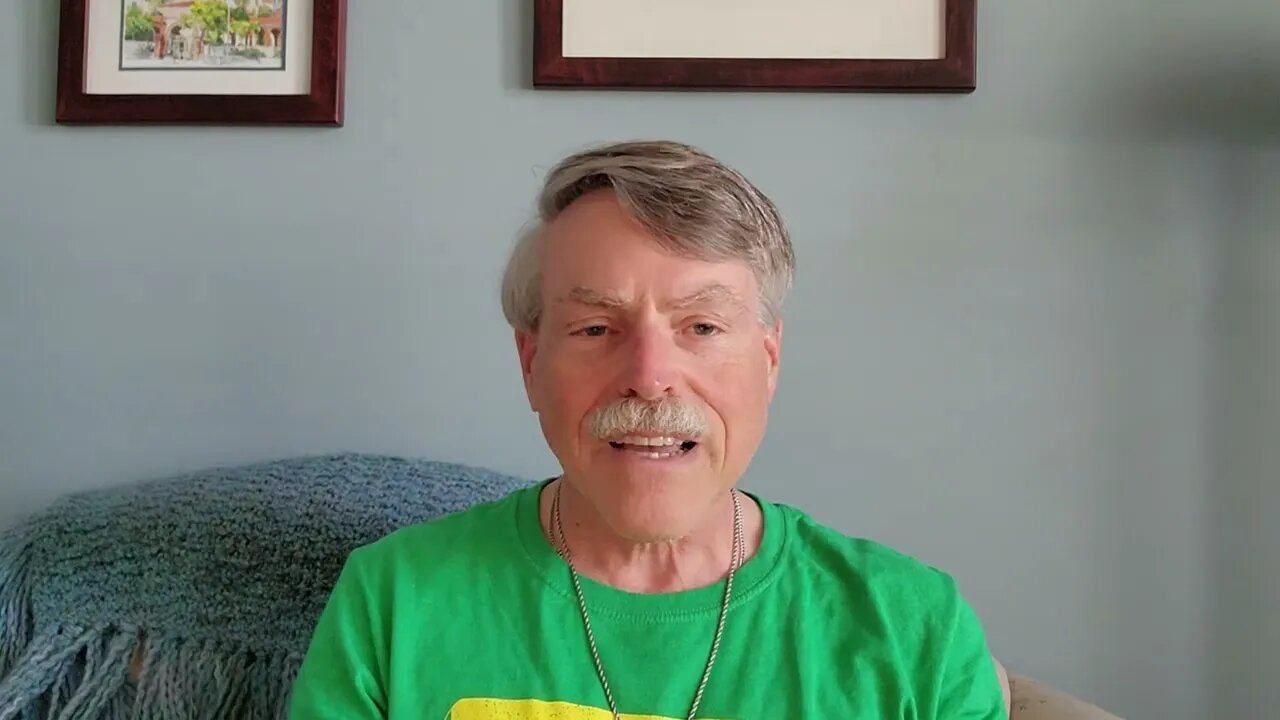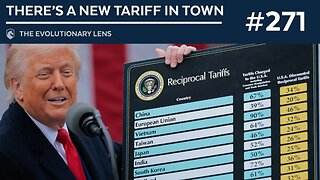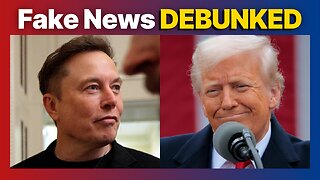Premium Only Content

No Soft Landing - Truncated
Rumble = https://rumble.com/user/SweetHomeStAugustine
Locals = https://sweethomesa.locals.com/
POPULIST REVOLT = https://populistrevolt.com
Federal Reserve Chair Jerome Powell said Thursday that persistent supply chain disruptions and “huge” geopolitical events happening around the globe could foil the Fed’s attempts at engineering a so-called “soft landing” for the U.S. economy, with the central bank chief’s statement amounting to an acknowledgment of the possibility of a recession.
Powell made the remarks in an interview on NPR’s “Marketplace,” in which he was asked whether he’s more concerned about the prospect of high inflation sticking around or the notion that the Fed’s monetary tightening response to surging prices could spark a recession.
“It’s a very challenging environment to make monetary policy,” Powell replied. “Our goal, of course, is to get inflation back down to 2 percent without having the economy go into recession, or, to put it this way, with the labor market remaining fairly strong.”
Calling price stability the “bedrock” on which the economy rests, Powell insisted that the Fed’s key objective is to tame runaway prices, saying that “nothing in the economy works” unless inflation is reined in.
Powell reiterated his expectation that the Fed would tighten monetary settings by hiking rates by 50-basis-point increments over the next two meetings but added that the central bank is prepared to act more aggressively if conditions warrant.
“We have a series of expectations about the economy. If they come in worse than when we expect, then we’re prepared to do more,” Powell said, prompting a question about whether the Fed would consider a 75-basis-point hike, which he declined to do, saying only that policymakers would “adapt to the incoming data and the evolving outlook.”
Powell was then asked about a pathway to “this mythical soft landing,” where the policy tightening doesn’t tip the economy into a recession.
“It will be challenging, it won’t be easy,” Powell replied, admitting that it “would have been better” to have started raising rates earlier than in March.
Addressing challenges, the Fed chief said that monetary policy can cool surging demand, which is part of the inflationary puzzle, but that the central bank has no tools to address supply-side factors.
“Supply is a big part of the story, here. But more than that, there are huge events, geopolitical events going on around the world, that are going to play a very important role in the economy in the next year or so,” Powell said.
“So the question whether we can execute a soft landing or not, it may actually depend on factors that we don’t control. But we should control the controllable. And what we control is there’s a job to do on demand, demand is out of whack with supply.”
Powell said that Fed policymakers would try to “moderate demand in a way that lets the labor market get back in balance and help inflation get back to 2 percent.”
“Wages are moving up at levels that are unsustainably high and not consistent with low inflation. And so what we need to do is we need to get demand down, give supply a chance to recover and get those to align,” Powell said.
Inflation as reflected in the headline Consumer Price Index (CPI) data showed prices climbing at a slightly slower 8.3 percent over-the-year pace in April compared to an 8.5 percent pace in March, prompting some analysts to suggest that peak inflation has arrived and the pace of price growth would start to fall. Others are not so sure.
Bankrate Chief Financial Analyst Greg McBride told The Epoch Times in an emailed statement that he sees inflation as having become more broad-based, while cautioning against interpreting the decline in headline CPI data as meaning that inflation has peaked.
“The pace of price increases moderated, but not as much as expected. Excluding a decline in energy prices—which appears outdated by this point—the increases remain widespread,” McBride said. “With the annual rate ticking down from 8.5 percent to 8.3 percent, it can be tempting to say we’ve seen the peak, but we’ve also been head-faked before as was the case last August.”
Core inflation, which strips out the volatile categories of food and energy and is viewed by economists as a more accurate measure of underlying inflationary pressures, picked up its pace in April.
Both on a year-over-year and on a month-over-month basis last month, core inflation accelerated to 6.2 percent and 0.6 percent, respectively. The monthly core inflation reading, in particular, was twice as high as the 0.3 percent pace notched in March, suggesting inflationary pressures may not have peaked.
-
 4:25:56
4:25:56
GamerGril
6 hours agoFistful of GrilCheese 🤠 How The West Was Won 🤠
14.2K -
 LIVE
LIVE
Akagumo
11 hours ago🔴 LIVE - AKAGUMO - SPECTACULAR SATURDAY! #12 - WARZONE VERDANSK RETURNS
102 watching -
 1:50:26
1:50:26
Darkhorse Podcast
8 hours agoThere’s a New Tariff In Town: The 271st Evolutionary Lens with Bret Weinstein and Heather Heying
40.3K38 -
 29:36
29:36
The Brett Cooper Show
2 days ago $4.45 earnedThe Non-Binary Samurai Game No One Wanted | Episode 19
40.3K39 -
 LIVE
LIVE
Phyxicx
5 hours agoHalo on a Saturday! - 4/5/2025
97 watching -
 16:46
16:46
Stephen Gardner
10 hours agoJudge Boasberg THREATENS to ARREST Trump White House leaders!
47.6K233 -
 1:30:53
1:30:53
Michael Franzese
1 day agoMichael Franzese UNLEASHES on the Left: Lies, Fraud, and Betrayal
40.1K43 -
 6:15
6:15
SKAP ATTACK
1 day ago $3.10 earnedGiannis Goes Full FREAK MODE in Historic Game
37.8K2 -
 19:35
19:35
DeVory Darkins
2 days ago $36.66 earnedMedia suffers failure after Elon Musk hit piece gets DEBUNKED
103K186 -
 12:38
12:38
Talk Nerdy Sports - The Ultimate Sports Betting Podcast
9 hours ago4/5/25 - Talk Nerdy Sports – Madness. Money. Mayhem.
60.3K6